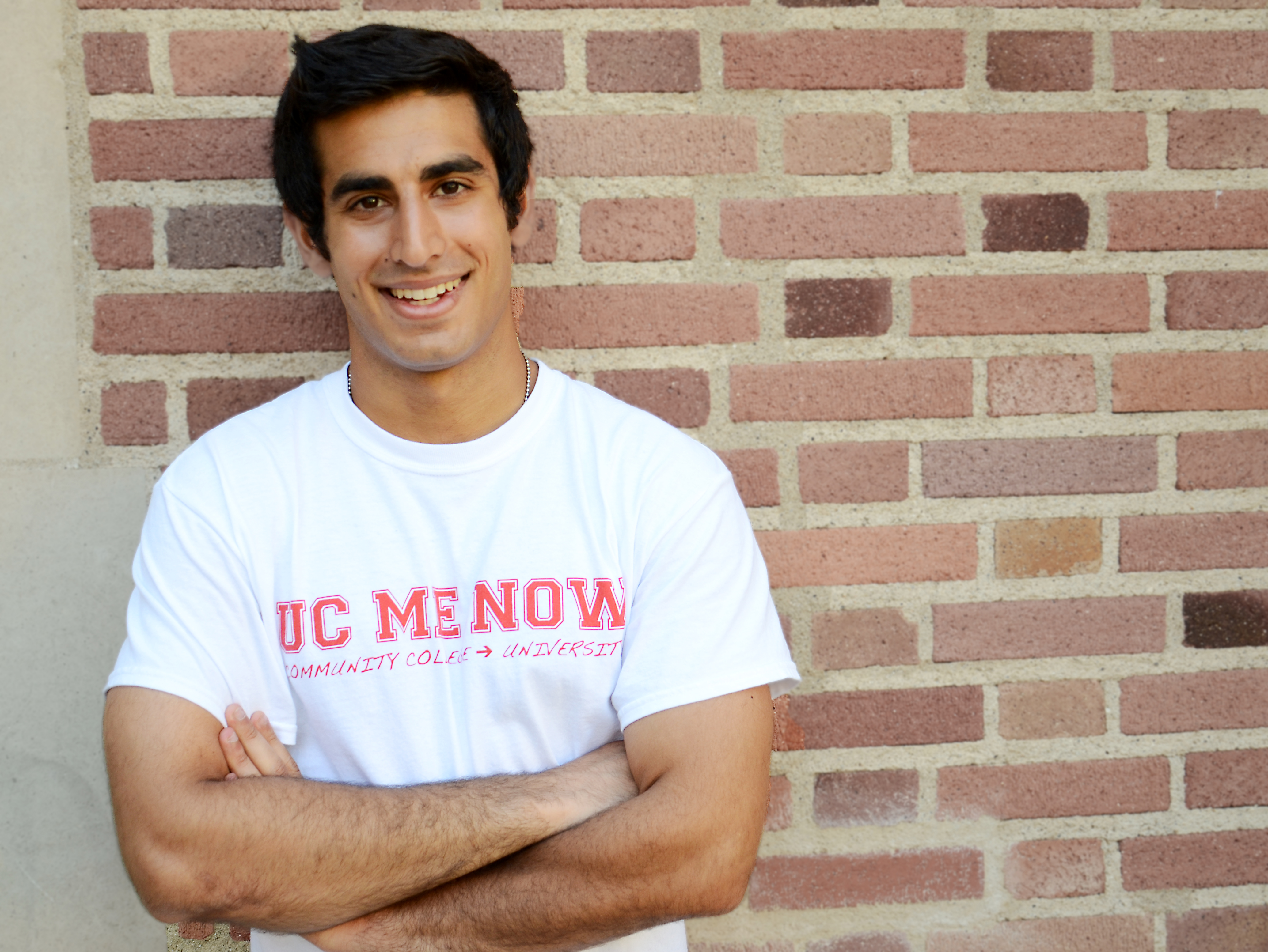His recording studio was a small, quiet room at a local library in his hometown of Orange County. His sole piece of recording equipment was a USB microphone, purchased with high school graduation money he saved for three years.
Locked away in the library room, Michael Esfahani spent the summer recording his own audiobook ““ a guide of firsthand advice for students looking to transfer from community colleges to four-year universities in California. The fourth-year political science and psychology student released the 90-minute, $20 audiobook called “UC ME NOW” early this month on his website, ucmenow.org.
“I really wanted to help students who, just like me, always had this goal of getting an education at a prestigious university, but for whatever reason were limited from doing that,” Esfahani said.
In his senior year of high school, Esfahani was only accepted into one college, California State University, Fullerton. Wanting to attend a school with a more prominent psychology program, he decided to attend Saddleback College, his local community college, and then transfer to another four-year university. He soon set his sights on attending UCLA.
After weekly visits to Saddleback’s transfer student center and speaking to a transfer counselor several times, Esfahani was accepted to UCLA last year.
“I followed everything that the transfer guidance told me to do, and I ultimately transferred to the university of my dreams,” Esfahani said.
He wanted to develop a resource to help other community college students get into a four-year university. He chose to make an audiobook because it would be an accessible way to reach out to students, he said.
The audiobook is divided into two sections ““ Esfahani narrates the first part using his own personal experience, providing advice on various topics of the transfer process, from choosing a major to knowing how to fulfill general education requirements.
He wrote the section’s 60-page transcript himself, consulting counselors and transfer center resources from multiple community colleges and fact-checking his information on the Internet.
The second section is made up of 20 interviews with students from several four-year universities talking about their experiences transferring.
The interviews are a big part of why Esfahani chose to make an audiobook as opposed to a written book. After listening to psychology self-help audiobooks, he said he found that the question-and-answer format and listening to firsthand experiences make it easier for students to understand information in a more personal way.
Esfahani also found students to interview by posting in transfer student Facebook groups.
Fourth-year psychology student Yesenia Capellino was one of the students who contributed an interview for the audiobook.
Capellino took advantage of her college’s transfer student mentorship program to aid her in the transfer process.
“If I didn’t have that mentoring component, I would be going crazy,” Capellino said. “Being able to hear different students from different campuses and majors and exactly what they went through is really helpful.”
Capellino said listening to other transfer students’ experiences helped her when she transferred to UCLA. She wanted to help other students in the same way, she said.
But some students, such as third-year communication studies student Jackie Trinh, think transfer counselors and centers at community colleges are sufficient by themselves in aiding with the transfer process,
Trinh said she did not have much difficulty transferring to UCLA because she utilized the resources at her community college. The audiobook would not have been much more helpful to her, she said.
“You just have to go to the transfer center and be active with your counselor,” Trinh said. “If you have a counselor you should be fine.”
Esfahani, however, said many community college students might not have the time to consistently visit their counselor because of outside obligations.
“I had to check up with the transfer center probably a million times, I had to always find out new (information) which became a bit tedious at times,” Esfahani said.
Esfahani is currently contacting community colleges about launching an audiobook tour during the upcoming winter break.
While Esfahani has sold only a small number of audiobooks, he expects sales to increase over time and plans to use the proceeds from the sales to eventually create a scholarship fund for transfer students.
“I did this project mainly because I feel just like a regular guy that’s been given an opportunity of a lifetime,” Esfahani said. “And I want to share that opportunity with as many people as I can.”
